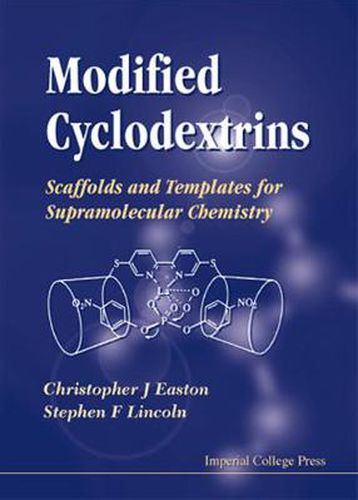Readings Newsletter
Become a Readings Member to make your shopping experience even easier.
Sign in or sign up for free!
You’re not far away from qualifying for FREE standard shipping within Australia
You’ve qualified for FREE standard shipping within Australia
The cart is loading…






Through modification, the natural cyclodextrins are effective templates for the generation of a range of molecular hosts. This makes it possible to tailor a cyclodextrin host to a particular guest, to meet specific requirements in the host-guest complex, and opens the way to diverse new areas of supramolecular chemistry. Metallocyclodextrins, rotaxanes and catenanes, as well as surface monolayers of modified cyclodextrins, are readily obtained. The native cyclodextrins serve as scaffolds on which functional groups and other substituents can be assembled, with controlled geometry. This results in substantially improved molecular recognition and procedures for chemical separation, including enantiomer discrimination, through guest binding. Access to the gamut of functional groups greatly expands the utility of cyclodextrins in chemical synthesis and provides catalysts which mimic the entire range of enzymic activity. Modifications to the cyclodextrins also lead to a range of photochemistry of cyclodextrin complexes, through which the enhancement of guest reactivity occurs; in addition, light harvesting molecular devices and photochemical frequency switches may be constructed. In solution, modified cyclodextrins have been used to construct molecular reactors, as well as molecular, temperature and pH sensors. At surfaces, they form semipermeable membranes and sensor electrodes. Such fields of chemistry, made possible only through modifications to the natural cyclodextrins, are the subject of this study.
$9.00 standard shipping within Australia
FREE standard shipping within Australia for orders over $100.00
Express & International shipping calculated at checkout
Through modification, the natural cyclodextrins are effective templates for the generation of a range of molecular hosts. This makes it possible to tailor a cyclodextrin host to a particular guest, to meet specific requirements in the host-guest complex, and opens the way to diverse new areas of supramolecular chemistry. Metallocyclodextrins, rotaxanes and catenanes, as well as surface monolayers of modified cyclodextrins, are readily obtained. The native cyclodextrins serve as scaffolds on which functional groups and other substituents can be assembled, with controlled geometry. This results in substantially improved molecular recognition and procedures for chemical separation, including enantiomer discrimination, through guest binding. Access to the gamut of functional groups greatly expands the utility of cyclodextrins in chemical synthesis and provides catalysts which mimic the entire range of enzymic activity. Modifications to the cyclodextrins also lead to a range of photochemistry of cyclodextrin complexes, through which the enhancement of guest reactivity occurs; in addition, light harvesting molecular devices and photochemical frequency switches may be constructed. In solution, modified cyclodextrins have been used to construct molecular reactors, as well as molecular, temperature and pH sensors. At surfaces, they form semipermeable membranes and sensor electrodes. Such fields of chemistry, made possible only through modifications to the natural cyclodextrins, are the subject of this study.